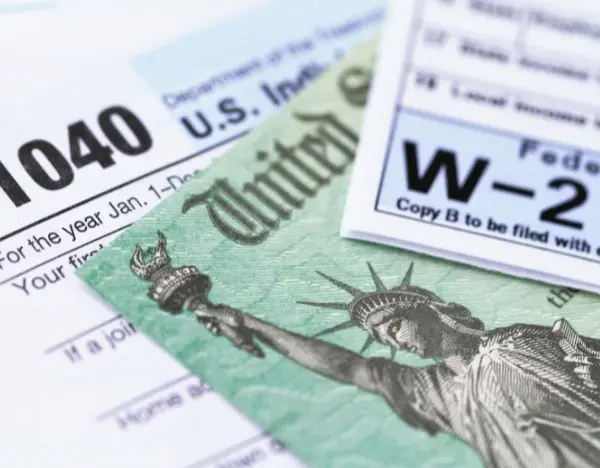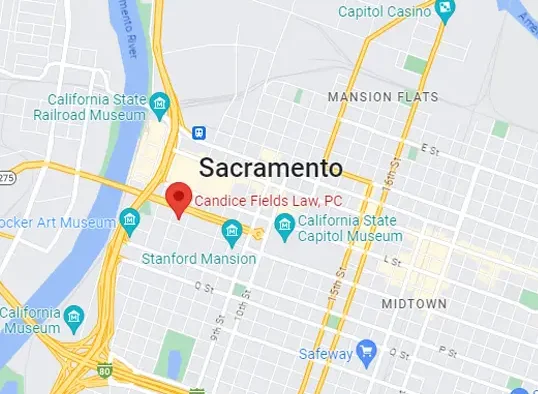What is the Punishment for Tax Evasion?

Tax evasion, a serious offense under U.S. law, involves deliberately underreporting income, inflating deductions, or not filing tax returns to reduce one’s tax liability. Given the complexities of tax laws, it's crucial to understand the potential consequences of such actions. At Candice Fields Law, P.C., we believe in empowering our clients with knowledge to navigate the legal system confidently. This blog explores the punishments associated with tax evasion, emphasizing the importance of compliance and the role of legal counsel in these situations.
What is Tax Evasion?

Tax evasion is a form of tax fraud involving illegal practices to avoid paying taxes owed to the government. This act is not just about making an error on a tax return; it's about intentionally deceiving the tax authority to reduce one's tax liability. Tax evasion can take various forms, each with its own set of methods and consequences. Understanding the breadth and depth of what constitutes tax evasion is crucial for staying on the right side of the law. Below, we delve deeper into the concept of tax evasion, highlighting its common forms and the underlying legal principles.
Forms of Tax Evasion
- Underreporting Income: This is one of the most common forms of tax evasion, where an individual or business intentionally fails to report all of their income to the IRS or state tax authority. This can include income from employment, investments, or any other sources.
- Inflating Deductions or Expenses: Taxpayers may also evade taxes by overstating their deductible expenses. This includes claiming personal expenses as business expenses or exaggerating the amount of a legitimate expense.
- Hiding Money in Offshore Accounts: Some individuals may attempt to evade taxes by hiding assets in foreign bank accounts or trusts. While holding money in offshore accounts is not illegal per se, failing to disclose these accounts to tax authorities constitutes tax evasion.
- Using Shell Companies: Tax evaders sometimes use shell companies—businesses without active operations or significant assets—to conceal business activities or ownership of assets, thereby evading taxes.
- Falsifying Records: Altering financial documents or creating fake transactions to deceive tax authorities is another form of tax evasion. This can involve forging receipts or invoices to justify false deductions.
- Not Filing Tax Returns: Deliberately not filing a required tax return is also a form of tax evasion, especially if the intention is to avoid paying taxes due.
Potential Penalties for Tax Evasion
Tax evasion is a serious criminal offense that carries significant penalties under U.S. law. Individuals and businesses found guilty of evading taxes can face harsh consequences designed to penalize wrongful behavior, deter future violations, and recover unpaid taxes. Here's an overview of the potential penalties for tax evasion:
Criminal Penalties
- Prison Time: One of the most severe consequences of being convicted of tax evasion is the possibility of imprisonment. Individuals can be sentenced to up to 5 years in federal prison for each act of tax evasion, according to the Internal Revenue Code (IRC) §7201.
- Fines: In addition to or instead of imprisonment, those convicted of tax evasion can also be fined. The maximum fine for individuals is up to $250,000, and for corporations, it can be up to $500,000. These fines are imposed by the court and are separate from any taxes owed.
- Probation: A court may also sentence an individual to probation, which typically includes conditions such as regular reporting to a probation officer, compliance with all tax laws during the probation period, and often the requirement to file and pay all back taxes.
Civil Penalties
In cases of tax evasion, the Internal Revenue Service (IRS) may also impose civil penalties in addition to any criminal penalties. These can include:
- Fraud Penalties: The IRS may impose a civil fraud penalty, which is typically equal to 75% of the underpayment that is due to fraud.
- Failure-to-File and Failure-to-Pay Penalties: If a taxpayer fails to file a return or fails to pay the taxes reported on a return, the IRS can charge additional penalties. The failure-to-file penalty is generally 5% of the tax owed for each month the return is late, up to 25%. The failure-to-pay penalty is 0.5% of the tax owed for each month, up to 25%.
- Accuracy-Related Penalties: The IRS may impose a penalty of 20% of the underpayment due to negligence or disregard of rules or regulations, or a substantial understatement of income tax.
Additional Consequences
The repercussions of tax evasion extend beyond criminal and civil penalties:
- Interest: The IRS charges interest on unpaid taxes and penalties starting from the due date of the tax until the amount is fully paid.
- Asset Seizure: To satisfy tax debts, the IRS may seize assets, including bank accounts, wages, property, and more.
- Reputation Damage: Individuals and businesses convicted of tax evasion can suffer significant reputational damage, affecting personal relationships, professional standing, and business operations.
- Loss of Professional Licenses: Certain professions may revoke or suspend licenses if a member is convicted of a felony, including tax evasion.
- Impact on Future Employment: A criminal record for tax evasion can make it difficult to obtain employment, especially in positions of trust or finance.
The severity of penalties often depends on the amount of tax evaded, the length of time over which evasion occurred, and the taxpayer’s intent. It's also important to note that the IRS often prefers to use civil penalties to encourage voluntary compliance, reserving criminal prosecution for the most egregious cases.
Given the complexities of tax law and the severe penalties for evasion, individuals and businesses facing accusations or charges of tax evasion should seek experienced legal representation. A tax evasion attorney can provide advice, help navigate the legal process, and work to mitigate the penalties involved.
Signs You Are Being Investigated for Tax Evasion
Being under investigation for tax evasion is a serious matter, and several signs may indicate the Internal Revenue Service (IRS) or another tax authority is scrutinizing your financial activities. It's crucial to recognize these signs early, as understanding that you might be under investigation allows you to seek legal counsel and prepare accordingly. Here are key indicators that you may be under investigation for tax evasion:
1. Unusual Communication from the IRS
- Frequent Notices: Receiving an unusual amount of correspondence or notices from the IRS, especially those querying aspects of your tax returns, could be a sign.
- Requests for Documentation: Being asked to provide additional documentation or to clarify information related to your tax returns.
2. An Audit Notification
- Audit Notification: While audits are a standard part of the IRS's oversight, being selected for an audit, especially if it's for multiple years or for specific transactions that could indicate evasion, might be indicative.
- Scope of Audit: The audit might focus on specific areas prone to evasion, such as undeclared income or overstated deductions.
3. Interviews with Business Associates or Employees
- Third-party Inquiries: If the IRS contacts your business associates, employers, clients, or even financial institutions you deal with, asking for information about your financial dealings, it's a potential red flag.
4. Changes in the Behavior of Financial Institutions
- Bank Notifications: Receiving notifications from your bank about IRS requests for your account information or transaction history.
- Frozen Accounts: In severe cases, if your accounts are suddenly frozen or subject to government scrutiny, it could be related to an investigation.
5. Direct Contact from an IRS Special Agent
- Criminal Investigation Division (CID): Being contacted directly by an agent from the IRS's Criminal Investigation Division is a strong indicator. The CID handles serious tax crimes, and their involvement suggests a criminal investigation.
6. Legal Orders
- Summons or Subpoenas: Receiving a summons for financial records or a subpoena to appear before a tax court or provide testimony related to your tax matters.
7. Advice from a Tax Professional
- Concerns Raised by Your Accountant: If your tax preparer or accountant expresses concerns about being contacted by the IRS regarding your filings or advises you that there might be an issue, take it seriously.
What to Do If You Suspect You're Being Investigated
If you encounter one or more of these signs, it's crucial to act judiciously:
- Do Not Ignore IRS Communications: Always respond promptly to any notices or requests from the IRS, but consider consulting with a tax professional or attorney before providing information.
- Seek Legal Counsel: Contact a tax evasion defense lawyer. They can provide advice, interface with the IRS on your behalf, and help you understand your rights and options.
- Gather Documentation: Start compiling all relevant financial records, including tax returns, bank statements, receipts, and any other documentation that could be pertinent to your case.
Being proactive and informed about the possibility of a tax evasion investigation is vital. Early intervention by a skilled attorney can often mitigate the severity of potential charges or penalties you might face.
How a Tax Evasion Defense Lawyer Can Help
At Candice Fields Law, P.C., we understand the gravity of facing tax evasion charges. The complexities of tax law and the potential for severe penalties make it imperative to have experienced legal representation. Our firm has experience in tax law and offers robust defense strategies for individuals and businesses under investigation or charged with tax evasion. Here’s how a tax evasion defense lawyer from our firm can assist you:
Comprehensive Evaluation of Your Case
- Initial Consultation: We begin with a thorough review of your situation, examining all correspondence and documentation related to the alleged tax evasion.
- Legal Assessment: Our legal team will assess the merits of the case against you, identifying any weaknesses in the government’s evidence or procedural errors that could be advantageous to your defense.
Strategic Defense Planning
- Tailored Defense Strategies: Based on our assessment, we develop a customized defense strategy that addresses the specific nuances of your case.
- Negotiation with Tax Authorities: Our attorneys are skilled negotiators who can often reach settlements with the IRS or other tax authorities to reduce your charges, minimize penalties, or even get the case dismissed.
Legal Representation
- Representation in Audits and Investigations: If you’re undergoing an audit or investigation, having a tax evasion lawyer present can help ensure your rights are protected and that you don’t inadvertently provide incriminating information.
- Advocacy in Court: Should your case go to trial, our seasoned litigators will vigorously defend your rights in court, presenting a strong case on your behalf.
Mitigation of Penalties
- Reducing Financial Penalties: We explore all avenues to reduce any financial penalties, including fines and restitution, that may be imposed.
- Avoiding Incarceration: Our primary goal in tax evasion cases is to avoid prison time for our clients, leveraging alternatives such as probation or plea agreements when possible.
Guidance and Support
- Informed Decision-Making: Throughout the process, we keep you informed about your options and the potential outcomes, ensuring you can make decisions based on comprehensive legal advice.
- Emotional Support: Facing tax evasion charges can be stressful. Our team provides not only legal but emotional support, guiding you through this challenging time.
Why Choose Candice Fields Law, P.C.
- Experience in Tax Law: Our attorneys have a deep understanding of both state and federal tax laws, ensuring you receive knowledgeable and effective representation.
- Experience with Tax Evasion Cases: We have a proven track record of successfully defending clients against tax evasion charges, from the initial investigation phase through to trial.
- Dedicated to Our Clients: At Candice Fields Law, P.C., we are committed to achieving the best possible outcome for each client. We understand the stakes are high, and we dedicate ourselves to your defense.
Facing tax evasion charges can be a daunting experience, but you don’t have to face it alone. Candice Fields Law, P.C. is here to help navigate the complexities of your case and work towards a favorable resolution. Contact us today for a consultation and take the first step towards protecting your rights and your future.
Take Action Now: Protect Your Future with Aggressive Legal Defense
Facing tax evasion charges or under investigation? Don't wait until it's too late. At Candice Fields Law, P.C. we offer the experience and aggressive defense you need to navigate these complex legal waters. Contact us today to secure your rights, your reputation, and your peace of mind. Act now for a brighter tomorrow.
Tax Evasion FAQs
How is tax evasion detected?
The IRS uses various methods to detect tax evasion, including random audits, analyzing discrepancies in tax returns, and following up on tips from whistleblowers. Advances in technology and data analysis also allow the IRS to identify irregularities in tax filings more efficiently.
What's the difference between tax evasion and tax avoidance?
Tax avoidance is the legal practice of minimizing tax liabilities through lawful means, such as taking legitimate deductions and credits. Tax evasion, on the other hand, involves illegal tactics to avoid paying taxes due. The key difference lies in legality and intent.
Can the IRS prosecute me years after the alleged tax evasion?
Yes, the IRS can initiate criminal prosecution for tax evasion up to six years after the alleged offense. For civil cases, such as when assessing taxes owed and penalties, the timeframe can be extended in certain situations.
What should I do if I'm being investigated for tax evasion?
If you suspect you're under investigation for tax evasion:
- Do not ignore any communication from the IRS.
- Avoid discussing the case with anyone but your lawyer.
- Gather and organize your financial records.
- Contact a tax evasion defense lawyer immediately for guidance and representation.
How can a tax evasion defense lawyer help?
A tax evasion defense lawyer can:
- Provide advice on your legal rights and options.
- Negotiate with the IRS on your behalf to potentially reduce charges or penalties.
- Develop a strategic defense to challenge the prosecution's case against you.
- Represent you in court, if necessary, to defend against the charges.
What are the potential penalties for tax evasion?
Penalties for tax evasion can include:
- Up to 5 years in prison for each charge of tax evasion.
- Fines up to $250,000 for individuals and $500,000 for corporations.
- Payment of back taxes owed, plus interest and penalties.
- Forfeiture of assets acquired through tax evasion.
Can tax evasion charges be reduced or dismissed?
Yes, tax evasion charges can be reduced or even dismissed, depending on the circumstances of the case, the evidence available, and the defense strategy. An experienced tax evasion defense lawyer can negotiate with the IRS or argue in court to achieve the best possible outcome for your situation.





